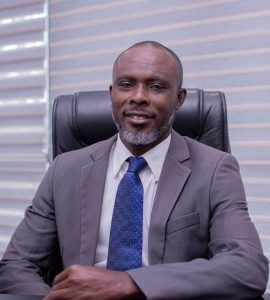Nuclear Power Ghana (NPG) has said it will soon settle on a strategic partner for the country’s nuclear power plant project, having already selected a preferred and backup site.
Whereas nuclear energy was not a significant part of the country’s energy mix, primarily relying on hydroelectric power, thermal generation and some renewable energy sources, its current push to transition will however make nuclear power become predominant from the mid-2050s.
According to the National Energy Transition Framework, the use of natural gas is expected to decline in the mid-2050s due to the optimal scaling up of nuclear power in the generation mix.
It is in line with this commitment that efforts continue to develop nuclear power as a key energy source, with the hope of announcing a strategic partner by close of the year, 2023.
The Executive Director of NPG, Dr. Stephen Yamoah, said vendor engagement for strategic partners is advanced – with a report being finalised for submission and engagement with the Ministry of Energy.
He said after scaling down the list of potential partners, the shortlisted were brought into the country for further discussions. “What’s currently happening is that we are putting the report together for onward submission to the Energy Ministry and government,” he added.
Identification of the preferred and support site, he explained, will enable NPG to proceed with plans to build the first nuclear power plant – which paves the way for others in the near-future.
Dr. Yamoah was speaking in an interview with B&FT on the back of the ‘Ghana Industrial Summit and Exhibition 2023’ organised by the Association of Ghana Industries (AGI) in Accra, and noted that this development will enable the country to fully meet energy demands of industries in future.
“We are talking about a lot of demand in the future, based on anticipated industry growth. If industries are producing at a very high cost, then product marketability becomes a challenge because electricity is one major component that drives the cost,” he said.
Given this, he said, nuclear power is expected to help with lower tariffs that will help industrial competitiveness.
In his address to industry players at the ‘Energy Day’ event as part of the Ghana Industrial Summit and Exhibition 2023, he noted that nuclear power projects involve a particularly complex supply chain with quality control issues at different levels.
He said: “We must therefore get ourselves ready to maximise the economic opportunities that come along with the project. This is because there are opportunities for capacity building, technology transfer, strengthening partnerships and access to the world market in nuclear and non-nuclear areas”.
Also, he observed that as a newcomer country with a lack of knowledge of about nuclear quality standards and experience in nuclear power projects, the qualification of local suppliers will be critical to the project’s success.
Chief Executive Officer-AGI, Seth Twum-Akwaboah, addressing participants and exhibitors at the Energy Day event’s opening session, acknowledged the critical role energy plays in the work of industry.
He said there cannot be industrialisation without an efficient, reliable, regular and consistent quality supply of energy at a competitive price.
Against this backdrop, he observed that anytime there are challenges with the energy sector, industry output is severely affected. For example, he cited that during the 2015 energy crisis output dropped, orders could not be met, and the cost of energy became expensive – with the industry becoming uncompetitive.
It is in line with this, he said, that energy is critical – hence the keenness of AGI to make it part of its programmes.
Meanwhile, Mr. Twum-Akwaboah also recognised the gains made with nuclear energy in the country. Despite the perceived negativity that has surrounded the use of nuclear power, he noted it is exciting it is gradually being embraced.
Beyond driving down energy tariffs, he noted that there are several business opportunities associated with the development of nuclear energy.
The Ghana Industrial Summit and Exhibition 2023 was a three-day event organised under the theme ‘Industrialisation through a sustainable and efficient supply chain’.
The event sought to create a unique platform and opportunity for policymakers, investors and other industry players to discuss relevant business issues affecting industries and seek possible solutions.
Deputy Chief Executive-Engineering and Operations, Volta River Authority (VRA), Edward Ekow Obeng-Kenzo assured stakeholders during the ceremony that VRA will continue to fulfil its mandate as a public sector organisation.
The organisation’s goal is to reduce the impact of supply chain disruptions in critical sectors like energy by ensuring a reliable power supply.
“We will focus on increasing our generating capacity as well as retooling our power plants to guarantee provision of the requisite power needed to power our industries for national industrial growth,” he said.
In line with this, he mentioned that VRA is working on a generation plan for the long-term that incorporates both thermal and renewables for 2028 and beyond.










